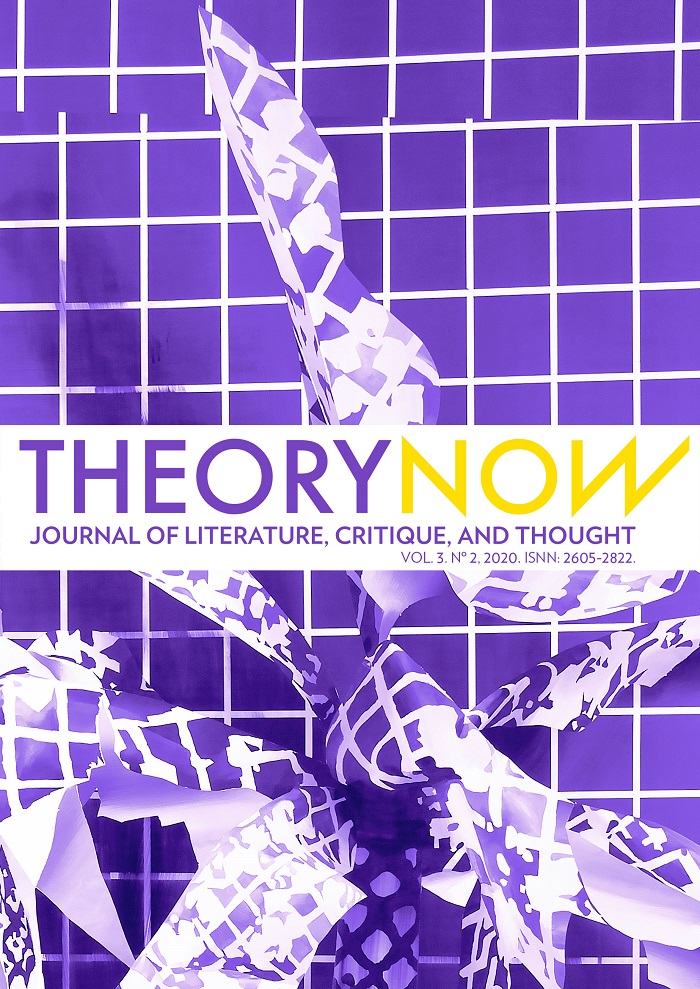Culture as Societal Imagination
DOI:
https://doi.org/10.30827/tnj.v3i2.15502Keywords:
culture, imagination, cultural theory, social theory, identity, lateral universality, Niklas LuhmannAbstract
The present article proposes to conceptualize culture as societal imagination. Transcendental philosophy defines imagination as the capacity of distinguishing repeatable and therefore significant features within perception, which can then be processed by consciousness. Analogously, culture may be defined as the bundle of mechanisms which provide communication with significance. The proposed model underlines the difference between consciousness and communication in terms of the operations they perform but characterizes culture as the structure that links both of them together. Since the operation distinguishing something significant from its insignificant surroundings is irreducibly contingent, both individual imagination and culture are autonomous vis à vis individual and societal claims to sovereignty. Therefore culture, rightly understood, can enable forms of reciprocal understanding which have the potential to overcome any demarcation, for example in terms of concepts of identity.Downloads
References
Abelson, Robert P. “Script Processing in Attitude Formation and Decision Making”. Cognition and Social Behavior, John S. Carroll y John W. Payne (eds.), Hillsdale, Lawrence Erlbaum, 1976, pp. 33-67.
Baecker, Dirk. Wozu Kultur? Berlín, Kadmos, 2001.
Bhabha, Homi K. El lugar de la cultura. 1994. Traducido por César Aira. Buenos Aires, Manantial, 2002.
Dembeck, Till. Texte rahmen. Grenzregionen literarischer Werke im 18. Jahrhundert (Gottsched, Wieland, Moritz, Jean Paul). Berlín, De Gruyter, 2007.
Dembeck, Till. “Fichte dem Buchstaben nach auslegen: Selbst-Lektüre bei Jean Paul”. Jahrbuch der Jean-Paul-Gesellschaft, vol. 44, 2009, pp. 113-140.
Dembeck, Till. “Kulturpolitik und Totalitarismus. Zur deutschen Romantik”. Merkur, vol. 2, 2012, pp. 170-176.
Dembeck, Till. “Reading Ornament. Remarks on Philology and Culture”. Orbis Litterarum, vol. 68, nº 5, 2013, pp. 367-394.
Derrida, Jacques. “La différance”, Márgenes de la filosofía. 1972. Traducido por Carmen González Martín. Madrid, Cátedra, 1994, pp. 37-62.
Derrida, Jacques. Schibboleth. Para Paul Celan. 1986. Traducido por Jorge Pérez de Tudela. Madrid, Arena Libros, 2002.
Derrida, Jacques. El monolingüismo del otro, o la prótesis de origen. 1996. Traducido por Horacio Pons. Buenos Aires, Manantial, 1997.
Frank, Manfred. "Unendliche Annäherung". Die Anfänge der philosophischen Frühromantik. Fráncfort del Meno, Suhrkamp, 1997.
Geertz, Clifford. “Thick Description: Toward an Interpretative Theory of Culture”. The Interpretation of Cultures. Selected Essays. New York, Basic Books, 1973, pp. 3-30.
Husserl, Edmund. Ideas relativas a una fenomenología pura y una filosofía fenomenológica. 1913. Traducido por José Gaos. México, Fondo de Cultura Económica, 1949.
Jean Paul. “Leben des Quintus Fixlein aus funfzehn Zettelkästen gezogen; nebst einem Mußteil für Damen und einigen Jus de tablette“. 1795. Sämtliche Werke, editado por Norbert Miller, vol. I.4. Darmstadt, Wissenschaftliche Buchgesellschaft, 2000, pp. 7-259.
Jullien, François. La identidad cultural no existe. 2016. Traducido por Pablo Cuartas. Madrid, Taurus, 2017.
Kant, Immanuel. Crítica de la razón pura. 1781. Traducido por Pedro Ribas. Madrid, Taurus, 2016.
Lévinas, Emmanuel. “La huella del otro”. 1963. La huella del otro. Traducido por Esther Cohen. México, Taurus, 2000, pp. 45-93.
Lotman, Yuri M. “Zum kybernetischen Aspekt der Kultur“. Aufsätze zur Theorie und Methodologie der Literatur und Kultur. Editado por Karl Eimermacher. Kronberg im Taunus, Scriptor, pp. 417-22.
Lotman, Yuri M. “Vnutri myslyashchij mirov”. Semiosfera; Kul’tura i vzryv; Vnutri myslyaschchij mirov; Stat’i. Issledovanya. Zametki. San Petersburgo, Iskusstvo-SPB, 2000, pp. 149-390.
Luhmann, Niklas. Sistemas sociales. Lineamentos para una teoría general. 1984. Traducido por Silvia Pappe y Brunhilde Erker. Barcelona, Ánthropos, 1998.
Luhmann, Niklas. “Wie ist Bewußtsein an Kommunikation beteiligt?”. 1995. Aufsätze und Reden. Editado por Oliver Jahraus. Stuttgart, Reclam, 2001, pp. 111-136.
Malinowski, Bronisław. A Scientific Theory of Culture and other Essays. 1994. Nueva York, Oxford University Press, 1960.
Mbembe, Achille. Crítica de la razón negra. 2013. Traducido por Enrique Schmukler. Barcelona, Ned Ediciones, 2016.
Menninghaus, Winfried. Unendliche Verdoppelung. Die frühromantische Grundlegung der Kunsttheorie im Begriff absoluter Selbstreflexion. Fráncfort del Meno, Suhrkamp, 1987.
Merleau-Ponty, Maurice. Fenomenología de la percepción. 1945. Traducido por Jem Cabanes. Barcelona, Planeta-De Agostini, 1993.
Merleau-Ponty, Maurice. Signos. 1960. Traducido por Caridad Martínez y Gabriel Oliver. Barcelona, Seix Barral, 1964.
Pike, Kenneth L. Language in Relation to a Unified Theory of the Structure of Human Behavior. La Haya, Mouton, 1967.
Stanitzek, G. “Was ist Kommunikation?”. Systemtheorie der Literatur. Jürgen Fohrmann y H. Müller (eds.). Múnich, Fink, 1996, pp. 21-55.
Tylor, Edward Burnett. Religion in Primitive Culture. 1871. Nueva York, Harper, 1958.
Wilden, Anthony. Sistema y estructura: ensayos sobre comunicación e intercambio. 1972. Traducido por Ubaldo Martínez Veiga. Madrid, Alianza, 1979.
Downloads
Published
How to Cite
Issue
Section
License
Theory Now. Journal of Literature, Critique, and Thought is an immediate open-access publication which is available at no cost for readers and authors alike. Authors are not charged any kind of fee for the editorial processing of their articles. Reading, downloading, copying, distributing, printing, searching, linking or reusing all published articles for non-commercial uses is allowed on the condition of citing the author, the journal and the editing body. All intellectual material published in this journal is protected under a Creative Commons Attribution-NonCommercial 3.0 Spain license.
Dissemination of the articles in social (Facebook, Twitter, Linkedin, etc.) and scientific networks (ResearchGate, Academia.edu, etc.), public repositories at universities and other institutions, blogs, personal or institutional websites, Google Scholar, ORCID, ResearchID, ScopusID, etc. is strongly encouraged. In all cases, the intellectual property of the articles and any possible monetary profits derived from them belong exclusively to the authors.













